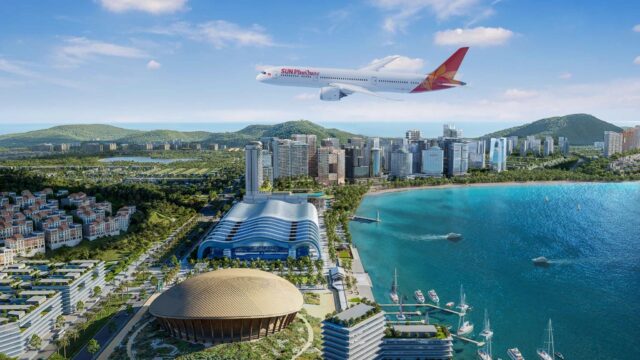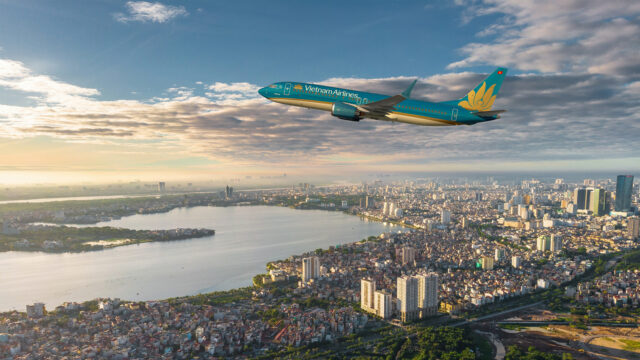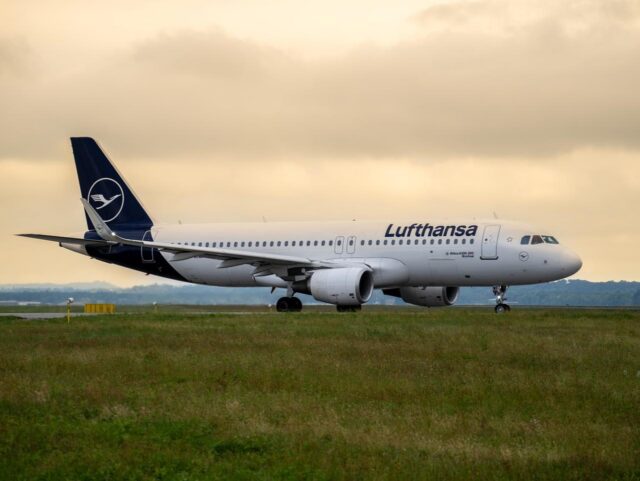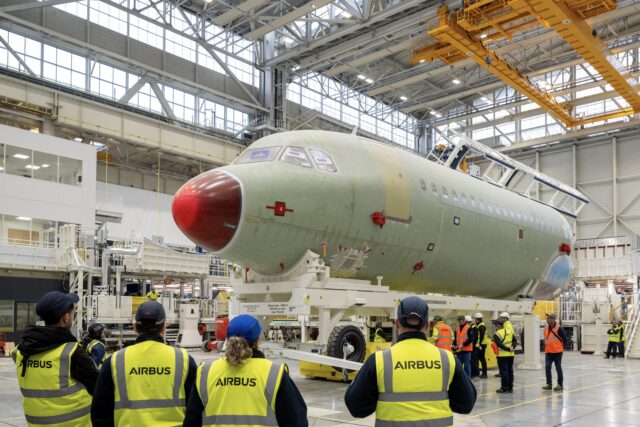Ecojet, the startup airline for a green Britain, flounders for lack of £20m funding

September 3, 2025

Ecojet, the proposed hydrogen-electric turboprop regional airline founded by UK eco-warrior Dale Vince, has laid off 11 out of its 13 employees earlier this year, leaving just two staff on the books.
The company had initially aimed to launch operations this summer. However, due to difficulties in raising £20 million and delays in obtaining an Air Operator’s Certificate (AOC) from the UK Civil Aviation Authority (CAA), the launch has now been postponed to 2026.
Ecojet, Dale Vince’s electric regional airline, has bold ambitions but no funding for AOC
Founded in August 2021 as Fresh Airlines Limited, the airline was relaunched as Ecojet in May 2023. It is majority-owned by Ecotricity, Dale Vince’s renewable energy company.
The company is led by CEO Brent Smith (a former captain with Flybe and co-founder of aviation consultancy Altsel Aviation) and chairman Peter Davies (Chief Executive, Airline Management Group and former head of several airlines).

As the startup described itself on X, formerly Twitter, last year: “We’re not just an airline; we’re a movement. We’re revolutionising aviation with our sustainability-focused airline, backed by a cutting-edge digital infrastructure.”
We do things a little differently. We’re not just an airline; we’re a movement. We’re revolutionising aviation with our sustainability-focused airline, backed by a cutting-edge digital infrastructure.
— Ecojet (@EcoJetAirlines) May 31, 2024
Curious about what’s next on our green journey? Stay tuned for more updates! pic.twitter.com/g7iqq8rCft
This past November, FlightGlobal reported the airline startup had selected Wyvern Partners to help it raise £20 million ($25 million) in capital to cover its regulatory requirements and launch of operations. It had begun recruiting a limited pool of pilots and cabin crew, applied for its AOC with the CAA, and moved into new offices near Edinburgh Airport.
However, the startup has not yet raised the funds needed and has scaled down to reduce operating costs.
According to its filing with Companies House in August, which showed financials through August 2024, Ecojet had burned through its original operating capital of £1 million. It reported net liabilities over £382,000.
Despite this, Ecojet filed as a going concern, stating, “The company continues to be supported by related parties who provide funding for operations. The operational funding support is expected to continue for at least one year.”
In the filing, the company also confirmed it had made 11 of its 13 employees redundant this January.
The planned Ecojet fleet: from conventional fuels to green hydrogen-electric powertrains
The Ecojet concept was to launch with conventional fuels, initially operating with conventional turboprop engines, and then retrofit these to hydrogen-electric powertrains as soon as the CAA approved the engines for service. It aimed to operate green hydrogen flights by 2026.
In 2023, ZeroAvia announced that Ecojet would retrofit its aircraft with ZeroAvia’s ZA600 engines.
“Ecojet will be working with MONTE, ZeroAvia’s preferred ZA600 lessor partner, in bringing this groundbreaking technology to market. ZeroAvia is targeting type certification of the ZA600 engine in 2025,” the company stated
“The newly launched airline has also placed a larger order for the more powerful ZA2000 engine, designed for up to 80-seat regional turboprops and with an entry-in-service target of 2027. This will open up the potential to fly aircraft such as the ATR 72 and Dash 8 400, already popular on regional routes across the world.
The airline also had plans for alternative aircraft in its operations
During last year’s Farnborough Airshow, Ecojet signed a Letter of Intent with ArcAerosystems to purchase 20 LINX P9 compound gyroplanes, with options for 30 more.

Britain’s first hydrogen-electric regional flights delayed
Ecojet’s pioneering attempt to establish a zero-emission regional airline in the UK, utilising hydrogen-electric technology in retrofitted turboprop aircraft, has been pushed back by at least another year.
The airline’s CEO, Brent Smith, posted his opinion on LinkedIn about the challenges the aviation industry faces in adopting alternative fuel and power sources. He was specifically addressing Airbus’s decision to postpone the ZEROe program by five to 10 years.
Smith described it as “an absolute damning reflection on us as an industry.” He added, “Money talks, pretty much every time. In this case, though, more than ever.”
















